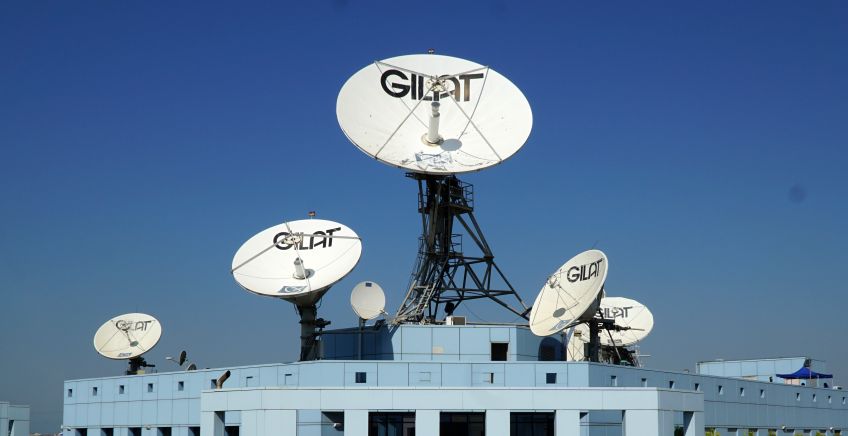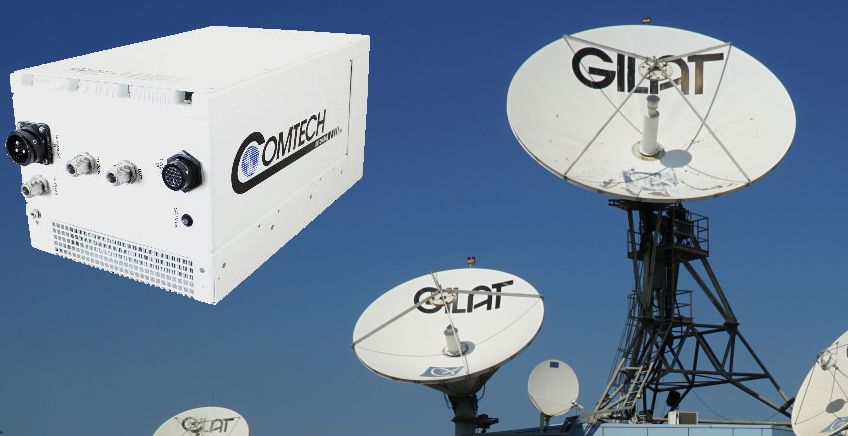A judge in the Delaware Court of Chancery, Texas, issued earlier this month a temporary injunction order against Comtech, following information presented by Gilat’s lawyers, according to which Comtech’s representatives met many times during the recent months with officials from the Federal Antimonopoly Service of Russia, without informing Gilat of the meetings, Bloomberg News revealed.
According to the information, Comtech members held about 17 “secret calls” with Russian officials, contrary to the agreement between the companies, which requires that representatives from both companies be present or informed at any “significant” meeting related to the merger transaction. Gilat’s lawyers claim that the very act of conducting these meetings and their concealment indicate that Comtech made steps behind Gilat’s back that were meant to delay the approval of the merger in Russia until after the deadline set in the agreement (October 23).
After receiving the information, Judge Joseph Slights issued an injunction order requiring Comtech to provide Gilat with a notification 24 hours before any meeting or conversation with the Russian authority. The trial between the two companies will begin on October 5. The injunction order issued by the judge is a hard blow to Comtech, as the new information debunks its claim that Gilat is the one who tried to sabotage the obtaining of an approval from Russia.
Comtech’s Original Sin: Excessive Leverage
Gilat is a satellite networking technology, solutions and services provider. At the end of January 2020, Comtech Telecommunications Corp. and Gilat signed a deal under which Comtech would acquire Gilat for $577 million: 70% of them in cash and the rest in shares. The merger was supposed to create a company with annual revenues of about $1 billion. Even then, however, question marks arose concerning the financial basis of the deal.
Oppenheimer Israel analyst, Assaf Handley, told Techtime that he had already warned at the time of signing of the agreement that the capital structure of the deal was problematic, since it required Comtech to incur a debt of $500 million. “Such a debt represents a leverage that is four times larger in relation to the EBITDA of the merged company.
“It is a very high leverage for this industry, since the satellite communications market is very volatile. Companies of this type don’t take on large leverage since the volatility in quarterly earnings is very high, and cancellation of even a single order could cut a significant portion of the revenue and cash flow – and jeopardize repayment ability.”
Were the Russians merely an excuse?
If 2020 had been a normal year, Comtech would have been able to handle the debt burden, but COVID-19 shuffled the deck: the revenues of both companies fell sharply in the first half of 2020. Gilat ended its first quarter with a 23% drop in sales and a loss of $11.7 million. In the second quarter, sales fell by 35% and the company reported a loss of $4 million. Comtech reported a 20% drop in sales in the fiscal quarter that ended late April and a loss of $4 million.
Both companies attributed the deterioration in business to delays in orders in the wake of the COVID-19 crisis. Comtech’s share has been cut by more than half – a major blow to the merger, since approximately third of the deal was supposed to be paid for in shares. Could it be that Comtech has decided to withdraw from the deal due to this reason? Unilateral cancellation of the agreement involves payments of tens of millions of dollars in compensation. According to Gilat’s attorneys, this is the reason why Comtech had decided to find an excuse to renege the agreement.
The injunction order is not reassuring for Comtech
In July 2020, Comtech filed a lawsuit in the Delaware Court of Chancery, alleging that Gilat had made structural changes to its subsidiary in Russia and thereby jeopardized the approval of the merger. A few days later it filed a revised lawsuit in which it sought a declaratory ruling that would determine that the COVID-19 crisis had inflicted a “significant adverse harm” to Gilat’s operations, and that this constitutes a ground for rescinding the agreement.
Gilat responded in a counterclaim in which it claims that Comtech is deliberately trying to sabotage the approval of the deal, and is looking for an excuse to shake off the merger. Handley believes that regulatory proceedings in Russia were simply an excuse. “If Comtech really wanted a deal, they would simply waive the Russian approval.
“In any case, Gilat’s activity in Russia is negligible. The injunction order issued by the judge, which in fact supports Gilat’s claims, is not reassuring for Comtech. It is hard to believe that in the current circumstances the deal will be executed, but there may be a real basis for Gilat to sue for compensation due to the substantial damages it suffered.”


